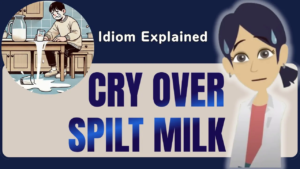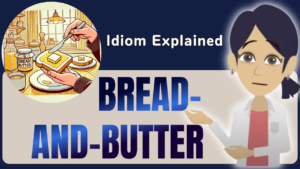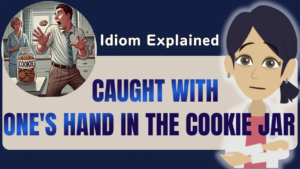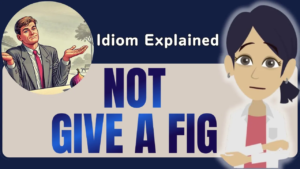Have you ever heard someone say “That’s the icing on the cake” and wondered if they were about to hand you a plate of dessert? Many English learners find idioms confusing at first, especially when they seem disconnected from their literal meanings. This phrase, however, fits nicely into everyday conversation once you know how it works. By exploring examples, fun facts, and related expressions, you can add a new layer of finesse to your language skills and sound more natural in various settings.
In this post, you will discover the essence of “icing on the cake,” learn to use it in different contexts, and explore several connected idioms that can spice up your vocabulary. If you have been studying English for a while and want to expand your range of expression, this guide is for you. Let’s begin!
Understanding the Core Meaning of “Icing on the Cake”
Defining the Expression
The idiom “icing on the cake” refers to something extra that enhances an already good situation. It is a metaphor rooted in the idea of decorating a tasty cake with a sweet layer of icing. The cake alone is enjoyable, but the icing adds that extra element of delight. Whenever you find yourself benefiting from an unexpected bonus—whether in your career, personal life, or leisure activities—that pleasant surprise can be described as the “icing on the cake.”
A Personal Anecdote
When I first encountered this idiom, I was at a social gathering where a friend announced, “Getting tickets to that concert for free was the icing on the cake!” At the time, I genuinely believed someone had brought an actual cake to the event. The laughter that followed made me realize I still had a lot to learn about English idioms. Once I understood what my friend truly meant, it became one of my favorite expressions.
Why This Idiom Matters
- Clarity in Communication: Knowing this idiom helps you convey that a positive situation became even better because of an additional element.
- Social and Professional Relevance: It can be applied in casual or formal settings, such as describing a job promotion with extra perks or a fun outing that includes a delightful surprise.
- Appeal for Learners: Using idioms like “icing on the cake” helps English learners sound more fluent and natural, demonstrating an understanding of cultural nuances.
Real-Life Illustrations
Simple Scenarios
Below are a few practical examples that show how “icing on the cake” can be woven into everyday conversation:
- Work Accomplishment: “Receiving a promotion at the office felt amazing, but the additional bonus was the icing on the cake.”
- Study Success: “Passing my final exam was a relief, and getting the top score in the class turned out to be the icing on the cake.”
- Travel Perks: “Visiting a famous city was a dream, and finding a discount on the perfect hotel was the icing on the cake.”
Each of these scenarios already offers a positive experience, and the unexpected bonus—be it a raise, a top score, or a discount—completes the moment with added pleasure.
Detailed Story: From Cake to Career
Imagine someone named Chris who has been job hunting for months. After a long process of interviews, Chris finally lands a position at a reputable company. That achievement alone is the “cake,” a wonderful reward. Later, Chris discovers that the new job includes a signing bonus and flexible working hours. Those extras are the “icing on the cake,” transforming a great outcome into an exceptional one.
In this situation, the phrase highlights how additional benefits elevate what was already a fantastic milestone. It also reflects a sense of gratitude and excitement, which helps maintain a positive tone in conversation.
Fun Facts and Notable Insights
- Longstanding Usage: While it’s difficult to pinpoint the exact year “icing on the cake” entered common parlance, many language historians trace it back to the 1800s in British and American English.
- Similar Worldwide Expressions: Some languages use “the cherry on top,” emphasizing the final, decorative addition that completes a sweet treat. Both convey a sense of something extra special added to an already positive experience.
- Cultural Adaptability: In business, this idiom is often used to describe a lucrative contract sweetened by additional perks. In entertainment, it might refer to a spectacular encore at a concert.
- Note on Musical References: Sometimes people mention hearing or seeing references to “icing on the cake” in popular songs. However, it’s wise to confirm direct lyrics before quoting. (Note: Any claim connecting specific popular tunes should be verified, as the phrase is common but may not be explicitly mentioned in certain songs.)
Broadening Your Vocabulary with Related Expressions
Similar Expressions (Synonyms)
- Bonus: An extra reward beyond what is expected.
- Perk: A special benefit that adds value.
- Cherry on top: A phrase similar in meaning, focusing on a decorative extra.
- Added plus: Another way to describe a small advantage or benefit that exceeds the baseline.
Example: “Getting a free coffee with my breakfast is a neat bonus that makes my morning even better.”
Opposite Expressions (Antonyms)
- Salt in the wound: Something that makes a bad situation worse.
- Kick in the teeth: An unexpected setback when you’re already facing challenges.
Example: “I lost my wallet, and discovering my card had been used was really salt in the wound.”
These opposing phrases help emphasize negative additions, contrasting with the uplifting nature of “icing on the cake.”
Practical Tips for Everyday Use
- Mix It Up: Instead of always saying “icing on the cake,” try synonyms or related expressions. This keeps your language lively.
- Stay Contextual: Use the phrase when you want to highlight an extra positive element. For instance, if you had a fantastic vacation and then got a surprise upgrade to first class, that upgrade is “the icing on the cake.”
- Mind Your Audience: This idiom is generally well-known in English-speaking cultures, but if you’re talking to someone less familiar with idiomatic language, consider providing a brief explanation.
- Look for Opposite Moments: Not every situation is wonderful. If you want to describe the exact opposite, choose an idiom like “kick in the teeth” to show added disappointment.
Additional Examples with Varied Contexts
Sometimes, reading multiple examples of an idiom solidifies comprehension. Here are more scenarios:
- Sports Achievement
- “Winning the championship felt incredible, and meeting a legendary athlete afterward was the icing on the cake.”
- This emphasizes that the victory alone was fantastic, and the unexpected meeting added even more excitement.
- Entertainment
- “Watching my favorite band live was unforgettable, and getting invited backstage for a quick chat with the singers was the icing on the cake.”
- The primary joy lies in attending the concert, and the backstage interaction is a delightful bonus.
- Personal Goals
- “I finally reorganized my entire home, and finding some forgotten cash tucked away in an old drawer was the icing on the cake.”
- While achieving the goal of organization felt satisfying, the discovery of extra cash added a fun surprise.
- Food-Related
- “I visited a restaurant known for its mouthwatering dishes, and the chef sent a complimentary dessert to our table. That was definitely the icing on the cake.”
- The meal itself was already pleasant, but the free dessert elevated the experience.
Quiz: Test Your Understanding
- What does “icing on the cake” imply in conversation?
A. An extra element that detracts from a good moment.
B. An additional benefit that makes a positive situation even better.
C. A minor detail that does not affect the main event. - Which scenario best describes “icing on the cake”?
- Getting a full scholarship after being accepted into a prestigious university.
- Missing a flight and losing your luggage on the same day.
- Buying new running shoes and returning them immediately because of a defect.
Answer Key:
- For the first question, the correct choice is B.
- For the second question, the best scenario for “icing on the cake” is 1), because the scholarship is the extra boost on top of an already good event (admission).
Closing Thoughts
Mastering the idiom “icing on the cake” allows you to convey the idea of receiving a bonus or unexpected treat that enhances a positive situation. Once you grasp its meaning, you can draw on related expressions such as “cherry on top,” “bonus,” or “perk” to diversify your speech. If you ever need to describe an opposite feeling—when life throws a negative surprise your way—phrases like “salt in the wound” are equally expressive.
By understanding and practicing these types of expressions, you strengthen your ability to communicate effectively in English. They add depth to your language, whether you’re telling a friend about an outstanding moment in your week or discussing a professional accomplishment. Keep an eye out for everyday situations where an extra perk brightens the moment, and you’ll naturally find yourself using “icing on the cake” with ease.









Comment